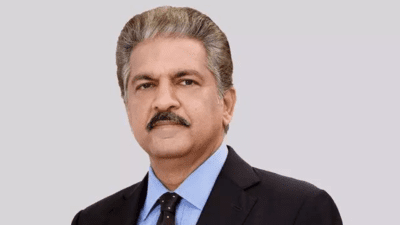India is well-positioned to emerge as one of the new centres of gravity, says Anand Mahindra; calls for speed & private investment amid ‘Globalisation 2.0’

A rising tide of protectionism is reshaping global trade, but it is not the end of globalisation—rather its rebirth, said Mahindra Group Chairman Anand Mahindra in his address to shareholders in the company’s 2024–25 annual report. Mahindra believes this transition offers India a unique opportunity to emerge as a new centre of gravity in what he called “Globalisation 2.0”.“India, too, will face challenges,” Mahindra said, noting the evolving nature of global trade marked by shifting alliances, reduced dependence on China-centric supply chains, and diminishing dominance of the US market. He said the world is moving toward a “multi-polar, regional, and domestically driven” model of globalisation, in which India is well-positioned to thrive.“Ironically, the US shift toward de-globalisation may lead to a new avatar of globalisation… I believe India is well-positioned to emerge as one of the new centres of gravity,” Mahindra asserted.He underscored India’s advantages, including its stable democracy, reputation as a reliable partner, and a strong, apolitical military. However, Mahindra cautioned that the future remains uncertain. “Whether it be a country or a business, the winners will be the ones who can successfully navigate uncertainty and ambiguity—the ones who are resilient.”Referring to geopolitical volatility, Mahindra acknowledged that India faces risks, especially with “our provocative neighbour”, Pakistan. “I am optimistic that we can demonstrate the limits to our tolerance without impeding our path to economic ascendance,” he added.He pointed out that US-China decoupling, while uncertain, is likely to continue, impacting trade flows. “International trade has already slowed amidst heightened uncertainty and dampened investor confidence,” he said. Industries relying on global supply chains—such as electronics and consumer goods—are particularly vulnerable due to rising input costs, he warned.Mahindra stressed that India must rethink its trade dependencies and diversify sourcing. He predicted increased localisation, re-engineered supply chains, and the formation of new trade networks globally. India’s trade deficit, sectoral vulnerabilities, and rising competition must be addressed strategically.“The challenge will be to minimise the adverse effects, akin to how Lord Shiva confined the poison to his throat without letting it spread,” Mahindra said, invoking the mythological reference of Samudra Manthan. But he urged India not to merely mitigate risks but seize this shift as a growth opportunity.“Instead, we can proactively view this as an opportunity to enable some ‘Amrit’ to emerge,” he said. Mahindra emphasised that private enterprise must lead this economic transformation with speed and agility.India could benefit from China’s adversarial stance, which may open up new opportunities in supply chains. Mahindra said India must focus on innovation, R&D, and manufacturing to capture market share from global competitors. “Restrictions on China and high tariffs for other competing countries could open new markets for Indian goods,” he said.To make the most of the moment, Mahindra warned, India must act swiftly. “Speed and agility are essential, as countries like the Philippines and Vietnam are already touting themselves as future manufacturing hubs. We must act swiftly and strategically to secure our share of the Amrit.”








